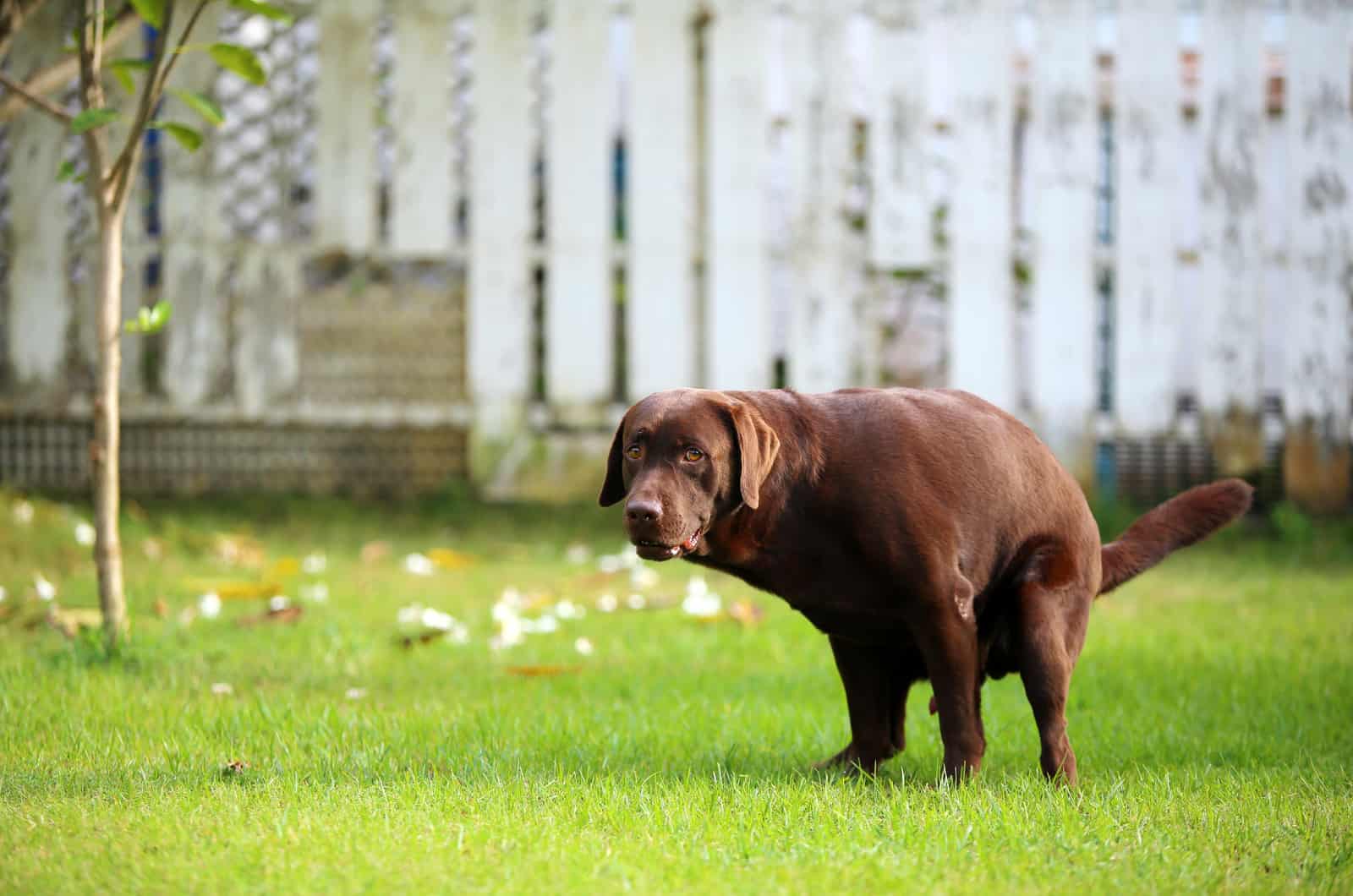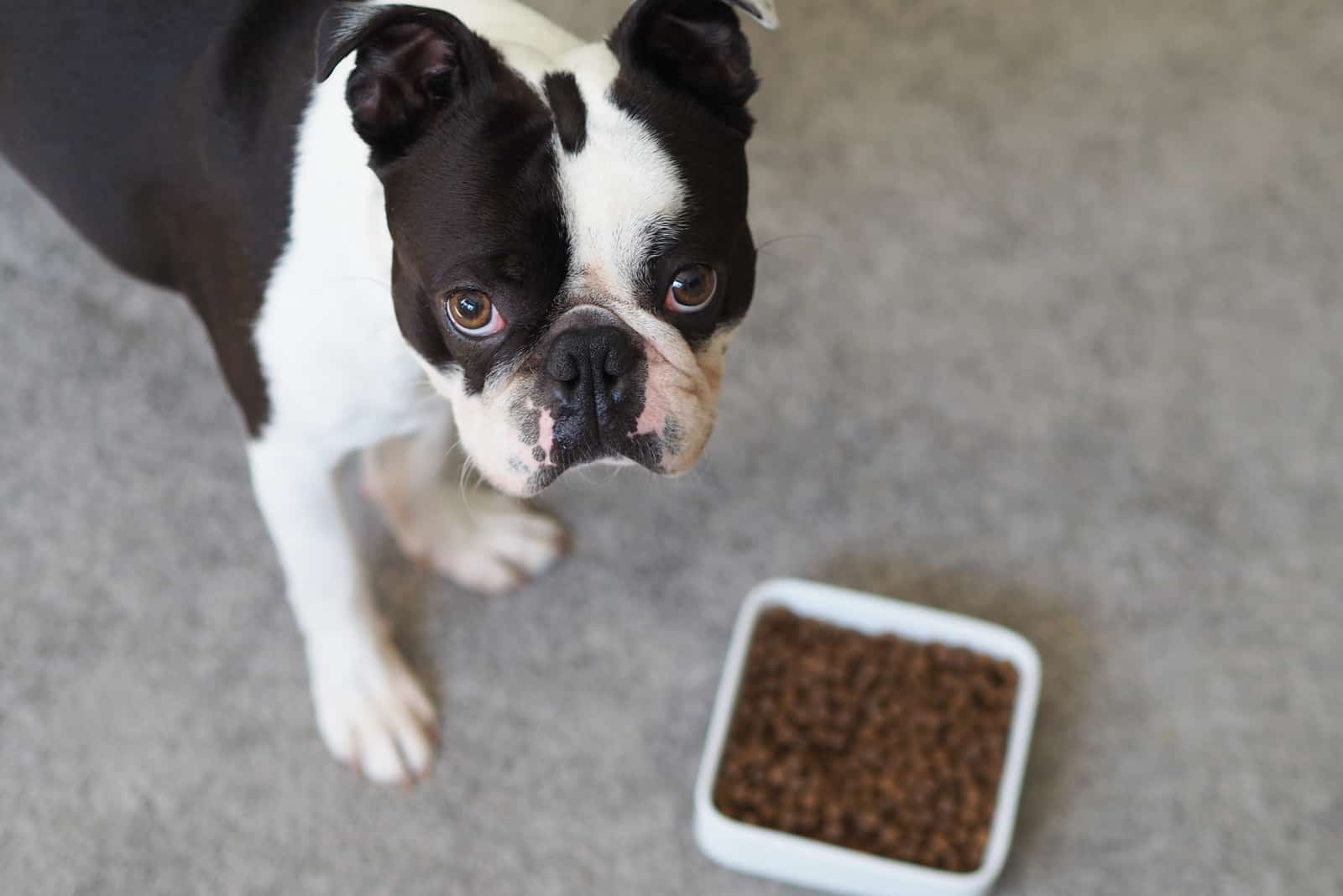Worms in dogs are a nightmare for all dog owners. The worms are small parasites that live in the dog’s intestines, and that cause distress and pain in dogs. Worms in dogs can even lead to serious consequences if they are not treated on time.
I know it is unpleasant even to imagine your dog having worms. But, you need to understand that this is not a rare problem in our canine companions.
According to Kansas State University Veterinary Health Center [1], 34% of dogs are infected with some kind of intestinal worms, while young puppies have higher infection rates.
Some puppies might even be born with worms – this happens when a mother is infected and transmits the worms to her newborn puppies.
So, if you suspect your dog has worms, you should know that this is a common health issue. Now, the first thing you should do in this situation is to be able to recognize the symptoms of worms in dogs.
So, let’s take a look at the most common signs of worms in our furry friends.
1. Noticeable Worms In The Dog’s Feces

One of the most obvious signs of worms in your dog is – actually seeing the worms in the dog’s feces.
So, if you notice white specks in your dog’s feces, there is a high chance your dog has worms. Two most common types of worms that you might see in your dog’s feces are tapeworms and roundworms.
You might not have imagined yourself becoming so well-known with the appearance of your dog’s poop and its meaning, but you should know how important this is for your dog’s health.
You are a person that cleans after your dog, so, you might just pay attention to the color and form of your dog’s stool. It might not sound tempting, but, this is a good way to discover worms in dogs on time.
Therefore, your dog will have a better chance to fully recover.
2. Dog Won’t Let You Touch His Belly
Some dogs infected with worms might have swollen and painful stomachs. Therefore, if your dog won’t let you touch his belly, this might be a sign of worms in him.
You should not force touching your dog’s belly if he whines or even growls at you when you try to do this.
The best thing to do here is to call a vet as soon as possible.
3. Dog’s Refusal To Eat

All owners whose puppies seem to always be hungry might get surprised when their pets suddenly refuse to eat.
Dog’s refusal to eat might mean many things, many of which are health-related. One of the issues a dog’s decreased desire for food might indicate are worms in the dog’s intestines.
A dog having worms will feel uncomfortable and will probably be in pain. This will make him reluctant to do things he usually enjoys the most – such as eating.
If a dog refuses to eat, you will probably also notice weight loss in him.
4. Diarrhea Almost Always Brings Bad News
Diarrhea in dogs is not so rare; in some cases, it might just show that your dog has eaten some bad food.
Unfortunately, diarrhea can often be a sign of some health issue in dogs. Bloody diarrhea can be especially dangerous, and might indicate your dog has worms.
Results of a study from the Faculty of Veterinary Medicine in Sao Paulo, Brazil [2] showed a significant correlation between the presence of diarrhea in dogs and their positivity for worms.
So, this study implies that diarrhea is the most common manifestation of worms in dogs. Of course, this does not mean that all dogs with diarrhea have worms.
However, these results show that dog owners should take their dog’s diarrhea problem seriously. If you notice diarrhea in your dog, you should pay attention whether there are any additional symptoms of worm infestation in him.
5. Vomiting Is Also Possible

Dog vomiting can indicate many health issues, among which is also the worm infestation.
The color of your dog’s vomit can tell you a lot about your dog’s health. For example, if your dog’s vomit is brown, this might mean that your dog has ingested another animal’s feces.
If this other animal has tapeworms, this means your dog is now unfortunately also infested with these worms. So, eating another animal’s feces is one way for your dog to gain worms.
Also, a dog’s vomit might be white or yellow, and a dog might even throw up worms. So, vomiting is another infallible sign of worms in dogs.
6. The Scratching Issue
Many dogs scratch and lick their anus area, and this is something not so unusual to see.
Look at the video below that shows the dog Morrison scooting on the carpet for several times in a row.
Seeing a dog doing this might even be funny, but a dog that intensively scratches his anus is usually trying to find some relief for his discomfort.
Therefore, the scratching issue might also indicate the presence of worms in your dog.
7. Dog Seems Passive And Lethargic

Worms take dog’s blood and nutrients – this is how they survive in the dog’s intestines.
Due to blood loss, many dogs will have lower energy levels, and might seem lethargic. Some types of worms, such as the hookworms, might be especially dangerous. These worms ingest large amounts of blood from the dog’s body, and might cause anemia in dogs.
So, if your normally active and playful dog all of the sudden seems lethargic and passive and wants to be alone, this could indicate worms issue.
8. Dog Loses Hair
Since worms can cause scratching in dogs, some dogs might scratch and chew their fur a lot – which can lead to hair loss.
So, pay attention to your dog’s coat. Does his coat, which usually looks shiny and healthy, all of the sudden look inanimate? Worm infestation might cause this change in your dog’s coat.
9. Coughing Is Also A Potential Symptom

You have probably heard your dog cough sometimes. This is not strange, since this might be a way for your dog to clean his throat. Also, your dog might cough due to a certain allergen in his surroundings.
But, coughing can also be a symptom of worms in dogs. According to a study from the
Institute of Parasitology in Kosice, Slovak Republic [3], chronic cough is the most common symptom of lungworms in dogs.
So, if you notice your dog coughing intensively, you should consult your vet right away.
What Is The Treatment For Worms In Dogs?
The only person who should treat worms in your dog is, of course, your veterinarian. You should not treat your dog’s worms at home, especially not without consulting a vet beforehand.
Your vet will need to determine what kind of worms your dog has. Some of the most common worm types in dogs are roundworms, tapeworms, hookworms, lungworms, and heartworms.
All worms can be dangerous for your dog’s health, but heartworms are the one that can make the biggest complications.
For your vet to decide on the right treatment for your dog, he will first have to make your dog’s stool analysis. If there is a doubt of heartworms, your veterinarian will also test your dog’s blood.
Treatment for worms in dogs usually involves oral medication, pills, or injections. The most important thing here is to strictly follow your vet’s instructions.
The best would be, of course, to prevent worms in dogs.
All dog owners can do this by regularly deworming their puppies from a young age, and by always taking the best care of your dog’s hygiene, as well as by keeping his belongings clean.
Also, make sure that your dog doesn’t sniff around other dogs’ feces, since this is one of the most common ways for a dog to gain worms.
Wrapping It Up

Every dog owner is afraid of worms in their pets. Of course none of us would like to deal with this, but, this is something that is not so rare in our furry companions.
Therefore, all dog parents should be well prepared. By knowing how to recognize signs your dog has worms, you will be ready to react fast and to help your dog get better as soon as possible.
In the end, I will remind you of an essential thing here; don’t act on your own in situations like these – consult your veterinarian as soon as you notice potential symptoms of worms in your dog.
References:
[1] Zoonotic Potential of Common Cat/Dog Intestinal Parasites. DOI, Retrieved March 3, 2023.
[2] Lima ND, Raimundo DC, Souza VAF, Aguiar JM. Occurrence of gastrointestinal parasites in dogs and cats domiciliated in Santos, SP, Brazil. Braz J Vet Parasitol 2021; 30(4), DOI, Retrieved March 3, 2023.
[3] Cabanova, V, Hurnikova, Z, Miterpakova, M, et.al. Lungworm infections in dogs from Central Europe. Veterinarni Medicina, 63, 2018 (08): 367–372. DOI, Retrieved March 3, 2023.
